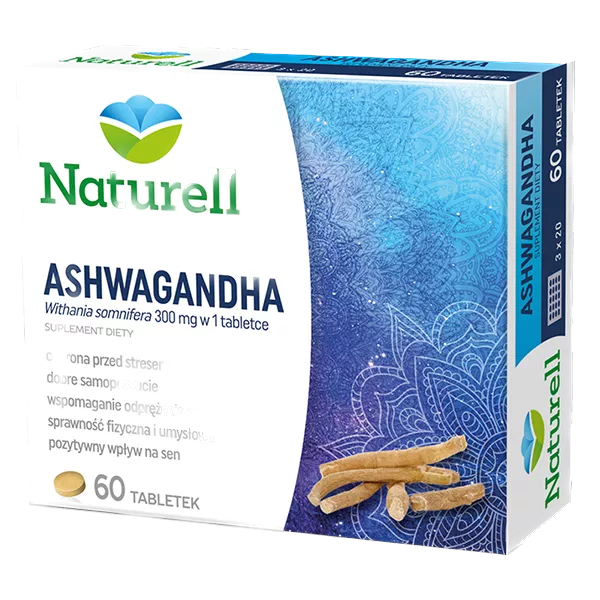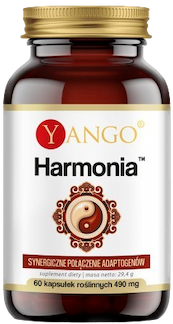Best time to take ashwagandha: in the morning or at night before bed? Before or after a meal?
Discover the best time to take ashwagandha to enjoy the full potential of this miracle herb.


Learn more about our editorial process
.

Learn more about our editorial process
.

Learn more about our editorial process
.

Learn more about our editorial process
.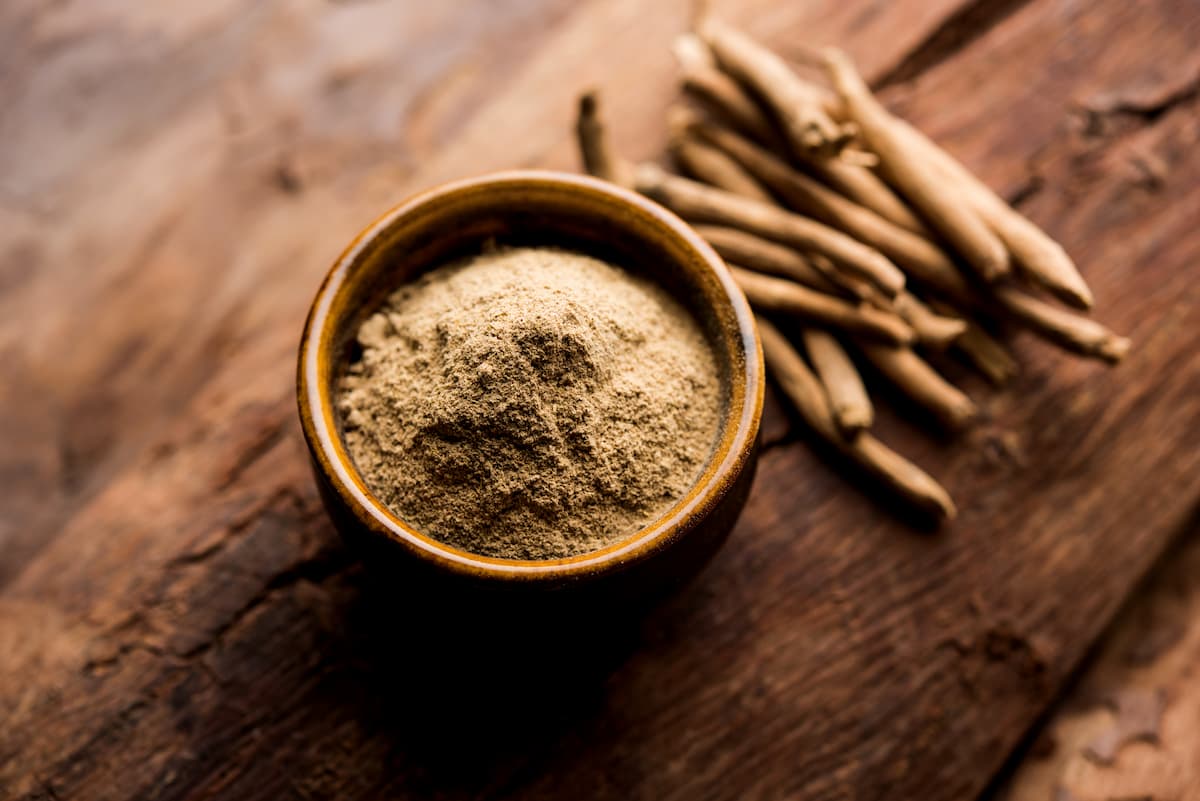
Why you can trust us
Articles on Natu.Care are written based on scientific research, data from government websites and other reliable sources. The texts are written in cooperation with doctors, nutritionists and other health and beauty experts. Articles are reviewed before publication and during significant updates.
.Learn more about our editorial process
.Information about advertisements
Content on Natu.Care may contain links to products from the sale of which we may receive a commission. When creating content, we adhere to high editorial standards and take care to be objective about the products discussed. The presence of affiliate links is not dictated by our partners, and we select the products we review ourselves completely independently.
.Learn more about our terms and Conditions
.Morning, overnight, pre-workout, post-workout. The possibilities are many, and the answer is not simple. You take Ashwagandha to see the effects you want, and timing can make all the difference to maximise its effects.
Collaborate with a doctor of medicine, a clinical nutritionist and pharmacists to answer this - seemingly - simple question: when to take ashwagandha?
From this article you will learn:
- What is the best time to take ashwagandha supplementation.
- How long should you wait for the first effects of supplementation.
- Who should not take ashwagandha.
- And what are the possible side effects.
See also:
- Ashwagandha
- Ashwagandha - when does it start working?
- Ashwagandha - dosage
- Indian ginseng
- Adaptogens
Ashwagandha: morning or night - when to take it?
Take ashwagandha at night e.g. in the evening after dinner, as it has a calming effect. Ideally, use it 45-60 minutes before bedtime to relax and calm you down. You can combat daytime sleepiness this way. On the other hand, ashwagandha taken in the morning can support the fight against stress, tension and lack of motivation during the day.
This is what Lukasz Borula, MSc, a pharmacist, suggests.
Remember also that if you have digestive problems, it is better to take ashwagandha during or after a meal. Taking it on an empty stomach, can cause digestive problems, such as abdominal pain or nausea.
Please note.
Unfortunately, there is also the other side of the coin - ashwagandha can have a diuretic effect. Therefore, its use at night also has its drawbacksand
If you decide to take ashwangadha in the morning, verify that it doesn't make you too sleepy.

Lukasz Borulamagister of pharmacy
Ashwagandha before or after a workout?
Adaptogens can improve muscular endurance. Even so, I recommend taking them after a workout or at night. When used before exercise, they can cause drowsiness, which can negatively affect exercise.

Lukasz Borulamagister of pharmacy
The use of ashwagandha after a workout can also work so well, as it can promote recovery and reduce inflammationand
Remember that every body is different and will react differently to particular supplements, including ashwagandha. Therefore, it is very important to try different times of taking it. This will help you assess which is best for you and brings the most benefit.
After how long will I see the effects of taking ashwagandha?
In light of scientific research, the effects of ashwagandha are noticeable after no less than 4-8 weeks of regular supplement use. As ashwagandha does not show immediate effects, use it daily - without much interruptionand
Consume ashwagandha with a meal rich in fat - this promotes better absorption by the body. Such a meal could be, for example, milk, avocado, fatty fish or nuts.

Ilona Krzak Master of Pharmacy
How to take ashwagandha safely
When supplementing with ashwagandha, it is helpful to follow three rules: check the contraindications to its use, avoid interactions with other supplements, medicines and herbs, and use continuously for 3 months.

Witold Tomaszewskidoctor of medical sciences
How long can you take ashwagandha?
It is recommended to supplement ashwagandha for a period of 6 weeks, followed by a 7-day break. Another school of thought is 6 months of supplementation and 1 month break. How you want to take it is an individual issue. The most important factor is how you feel after this adaptogen

Julia SkrajdaDietitian
How much ashwagandha before bedtime?
The dosage of ashwagandha is based on the form in which it is present and the expected results. Typically, dietary supplement manufacturers recommend the following dosages: 300-500 mg of ashwagandha extract per day; up to 3 g of powdered root per day; 1-2 tablespoons (approximately 5-7 g) of chopped root per day.

Witold Tomaszewskidoctor of medical sciences
Remember that the dosage of ashwagandha before bed, in the morning and during the day is no different - the recommendations are always the same. The exceptions to this rule are other recommendations from your doctor, dietician or pharmacist.
Ashwagandha - before or after food?
Taking ashwagandha on an empty stomach can lead to stomach upset. Despite this, some people prefer this supplementation as it is more effective for them. However, if you are afraid of gastric problems, take it about half an hour after a meal (or snack). You can also add ashwagandha to a drink.
See also:
- Naturell ashwagandha
- Ashwagandha Aliness
- Ashwagandha Swanson
- Solgar's Ashwagandha
- Ashwagandha SFD
- When ashwagandha starts working
- Ashwagandha dosage
Contraindications to the use of ashwagandha
Ashwagandha is considered safe, however, not everyone can take it.
Contraindications to the use of ashwagandhaand:
- pregnancy or breastfeeding,
- cancer, diabetes,
- thyroid disorders,
- bleeding disorders,
- some autoimmune diseases (e.g. lupus),
It is not recommended to combine ashwagandha with blood sugar lowering drugs, blood pressure lowering preparations, immunosuppressants, sleep medications and benzodiazepines. In addition, alcohol consumption during supplementation is discouraged.
Side effects during ashwagandha supplementation
If you follow the manufacturer's recommendations and are not in the contraindication group, then most often ashwagandha will be safe. However, sometimes it can cause side effects.
Side effects of ashwagandhaand:
- abdominal pain,
- vomiting,
- nausea,
- headaches,
- insomnia,
See also
Ashwagandha Naturell
Product description
Extract from ashwagandha leaves and root will boost energy, overcome fatigue, improve memory and concentration. The product is recommended during periods of increased physical tension or intense physical activity.
Pros and cons
Extract from ashwagandha leaves and root will boost energy, overcome fatigue, improve memory and concentration. The product is recommended during periods of increased physical tension or intense physical activity.
Additional information
Extract from ashwagandha leaves and root will boost energy, overcome fatigue, improve memory and concentration. The product is recommended during periods of increased physical tension or intense physical activity.
Dr. Jacob's Strong Nerves
Product description
Dr. Jacob's Strong Nerves is a dietary supplement thatóry supports the nervous system and helps the body to cope with stress. Thanks to the synergistic combination of beneficial ingredientsós, Strong Nerves relieves anxiety symptoms, increases mental and physical stamina, and supports concentration.
The benefits of this supplement are particularly important for peopleóly exposed to chronic stress, those with sleep problems or employeesóly. It is worth mentioning that the supplement can also help to improve mental well-being and support the immune system.
.All this makes Dr. Jacob's Strong Nerves an excellent remedy for anyone looking for comprehensive support for their nervous system and overall mental performance.
Pros and cons
Dr. Jacob's Strong Nerves is a dietary supplement thatóry supports the nervous system and helps the body to cope with stress. Thanks to the synergistic combination of beneficial ingredientsós, Strong Nerves relieves anxiety symptoms, increases mental and physical stamina, and supports concentration.
The benefits of this supplement are particularly important for peopleóly exposed to chronic stress, those with sleep problems or employeesóly. It is worth mentioning that the supplement can also help to improve mental well-being and support the immune system.
.All this makes Dr. Jacob's Strong Nerves an excellent remedy for anyone looking for comprehensive support for their nervous system and overall mental performance.
Additional information
Dr. Jacob's Strong Nerves is a dietary supplement thatóry supports the nervous system and helps the body to cope with stress. Thanks to the synergistic combination of beneficial ingredientsós, Strong Nerves relieves anxiety symptoms, increases mental and physical stamina, and supports concentration.
The benefits of this supplement are particularly important for peopleóly exposed to chronic stress, those with sleep problems or employeesóly. It is worth mentioning that the supplement can also help to improve mental well-being and support the immune system.
.All this makes Dr. Jacob's Strong Nerves an excellent remedy for anyone looking for comprehensive support for their nervous system and overall mental performance.
Solve Labs Brain Tech Memory & Focus, adaptogens, capsules

- Composition: bacopa monieri, gotu kola, rhoiola rosea, ginseng, zinc gluconate, choline, vitamin B6
- Form: capsules .
- Packaging: 30 or 60 capsules .
- Dose: 2 capsules daily .
- Sufficient for: 10 or 20 days .
Product description
Adaptogens, vitamins and minerals to support the mózg and nervous system. Brain Tech has been developed for people needing long-lasting concentration, improved learning ability, memory and increased resistance to stress.
Pros and cons
Adaptogens, vitamins and minerals to support the mózg and nervous system. Brain Tech has been developed for people needing long-lasting concentration, improved learning ability, memory and increased resistance to stress.
Additional information
Adaptogens, vitamins and minerals to support the mózg and nervous system. Brain Tech has been developed for people needing long-lasting concentration, improved learning ability, memory and increased resistance to stress.
Adaptogens, vitamins and minerals to support the mózg and nervous system. Brain Tech has been developed for people needing long-lasting concentration, improved learning ability, memory and increased resistance to stress.
YANGO, Harmony, adaptogens, capsules
Product description
This dietary supplement contains a synergistic combination of 5 plant extracts that positively influence the body's homeostasis and well-being. The product is recommended for people living under stress, tension and those who are physically active.
Pros and cons
This dietary supplement contains a synergistic combination of 5 plant extracts that positively influence the body's homeostasis and well-being. The product is recommended for people living under stress, tension and those who are physically active.
Additional information
This dietary supplement contains a synergistic combination of 5 plant extracts that positively influence the body's homeostasis and well-being. The product is recommended for people living under stress, tension and those who are physically active.
Product tiles contain affiliate links. As An Amazon Partner, I earn from qualifying purchases.
See also:
- Ashwagandha SFD
- Ashwagandha Aliness
- Ashwagandha Naturell
- Ashwagandha Swanson
- Solgar's Ashwagandha
- Sedation tablets
Summary
- If you are looking to calm and sedate, use ashwagandha in the morning. Taking it at night, on the other hand, may improve the quality of your sleep.
- The first effects of ashwagandha appear after 4-8 weeks of regular supplementation.
- The main contraindications to taking ashwagandha are pregnancy, breastfeeding, cancer, diabetes or autoimmune diseases.
- Some side effects that may occur with ashwagandha supplementation include abdominal and headaches, vomiting, nausea and drowsiness.
FAQ
Does ashwagandha make you sleepy?
Ashwagandha does not cause drowsiness and does not have a sleep-inducing effect, but it can support pre-sleep calmness and falling asleep. Take 300-500 mg of ashwagandha extract daily, starting with a lower dose. Long-term use in moderation may counteract sleep-related disorders.
Does ashwagandha work immediately?
Do not expect immediate results when using ashwagandha. Use it regularly over several weeks to see noticeable benefits. This adaptogen works by gradually reducing cortisol (the stress hormone), while improving nervous system function.
Is it okay to drink alcohol while taking ashwaganda?
Avoid drinking alcohol during ashwagandha supplementation. Alcohol can impair the effects of adaptogens, reducing their effectiveness. In addition, alcohol negatively affects brain function and the nervous system, whereas ashwagandha is thought to facilitate regenerative processes.
Is ashwagandha an antidepressant?
No, ashwagandha does not function as an antidepressant nor does it exhibit anti-depressant properties. Antidepressants are a group of medications available only by prescription and prescribed by a doctor.
What not to combine ashwagandha with
Ashwagandha should not be combined with medications:
- used in the treatment of depression and anxiety,
- Ashwagandha should not be combined with the following medications
- immune system inhibitors,
- blood thinners,
- blood thinners.
- blood thinners,
- blood thinners
- used in the treatment of thyroid disorders,
- for high blood pressure,
- anti-diabetics,
While taking ashwagandha, you should also avoid sleep supplements and alcohol.
When not to take ashwagandha.
Do not take ashwagandha in the following situations: during pregnancy and breastfeeding, if you are on hormone treatment, suffer from autoimmune diseases, hyperthyroidism or have stomach ulcers.
Use ashwagandha with caution (and only with your doctor's approval) if you are taking anti-diabetic or anti-epileptic medication.
Does ashwagandha harm the liver?
Ashwagandha should not harm the liver when used as directed. In fact, it may even support the health of this organ, thanks to its antioxidant and anti-inflammatory properties.
On the other hand, an excess of any supplement can lead to health problems. Therefore, take care of the correct dosing of ashwagandha
Sources
See all
Anwer, T., Sharma, M., Pillai, K. K., & Iqbal, M. (2008). Effect of Withania somnifera on insulin sensitivity in non-insulin-dependent diabetes mellitus rats. Basic & Clinical Pharmacology & Toxicology, 102(6), 498-503. https://doi.org/10.1111/j.1742-7843.2008.00223.x
Ashwagandha. (2012). In LiverTox: Clinical and Research Information on Drug-Induced Liver Injury. National Institute of Diabetes and Digestive and Kidney Diseases. http://www.ncbi.nlm.nih.gov/books/NBK548536/
Chandrasekhar, K., Kapoor, J., & Anishetty, S. (2012). A Prospective, Randomized Double-Blind, Placebo-Controlled Study of Safety and Efficacy of a High-Concentration Full-Spectrum Extract of Ashwagandha Root in Reducing Stress and Anxiety in Adults. Indian Journal of Psychological Medicine, 34(3), 255-262. https://doi.org/10.4103/0253-7176.106022
Kumar, A., & Kalonia, H. (2008). Effect of Withania somnifera on Sleep-Wake Cycle in Sleep-Disturbed Rats: Possible GABAergic Mechanism. Indian Journal of Pharmaceutical Sciences, 70(6), 806-810. https://doi.org/10.4103/0250-474X.49130
Panda, S., & Kar, A. (1998). Changes in thyroid hormone concentrations after administration of ashwagandha root extract to adult male mice. The Journal of Pharmacy and Pharmacology, 50(9), 1065-1068. https://doi.org/10.1111/j.2042-7158.1998.tb06923.x
Salve, J., Pate, S., Debnath, K., Langade, D., Salve, J., Pate, S., Debnath, K., & Langade, D. G. (2019). Adaptogenic and Anxiolytic Effects of Ashwagandha Root Extract in Healthy Adults: A Double-blind, Randomized, Placebo-controlled Clinical Study. Cureus, 11(12). https://doi.org/10.7759/cureus.6466
Singh, N., Bhalla, M., de Jager, P., & Gilca, M. (2011). An Overview on Ashwagandha: A Rasayana (Rejuvenator) of Ayurveda. African Journal of Traditional, Complementary, and Alternative Medicines, 8(5 Suppl), 208-213. https://doi.org/10.4314/ajtcam.v8i5S.9
Udayakumar, R., Kasthurirengan, S., Mariashibu, T. S., Rajesh, M., Anbazhagan, V. R., Kim, S. C., Ganapathi, A., & Choi, C. W. (2009). Hypoglycaemic and Hypolipidaemic Effects of Withania somnifera Root and Leaf Extracts on Alloxan-Induced Diabetic Rats. International Journal of Molecular Sciences, 10(5), 2367-2382. https://doi.org/10.3390/ijms10052367
Editorials
Meet the team


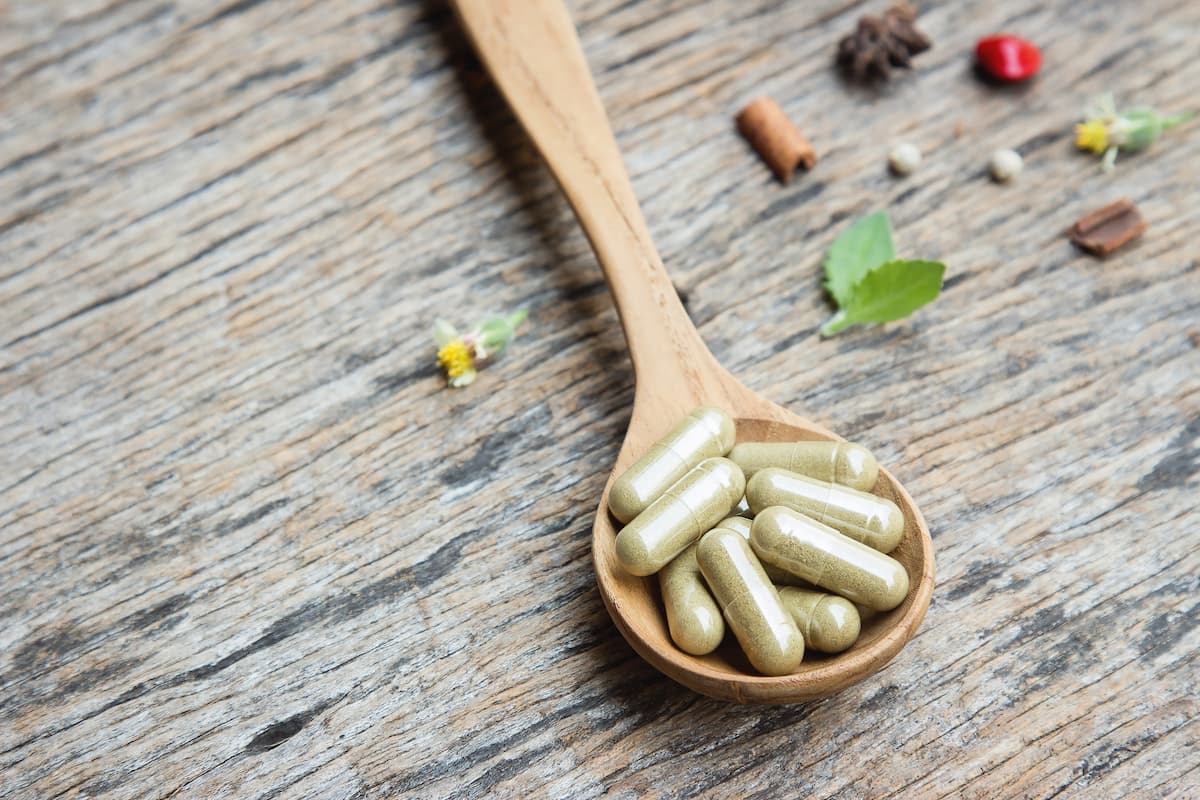
Ashwagandha affects thyroid hormone levels. Find out if you can use it.
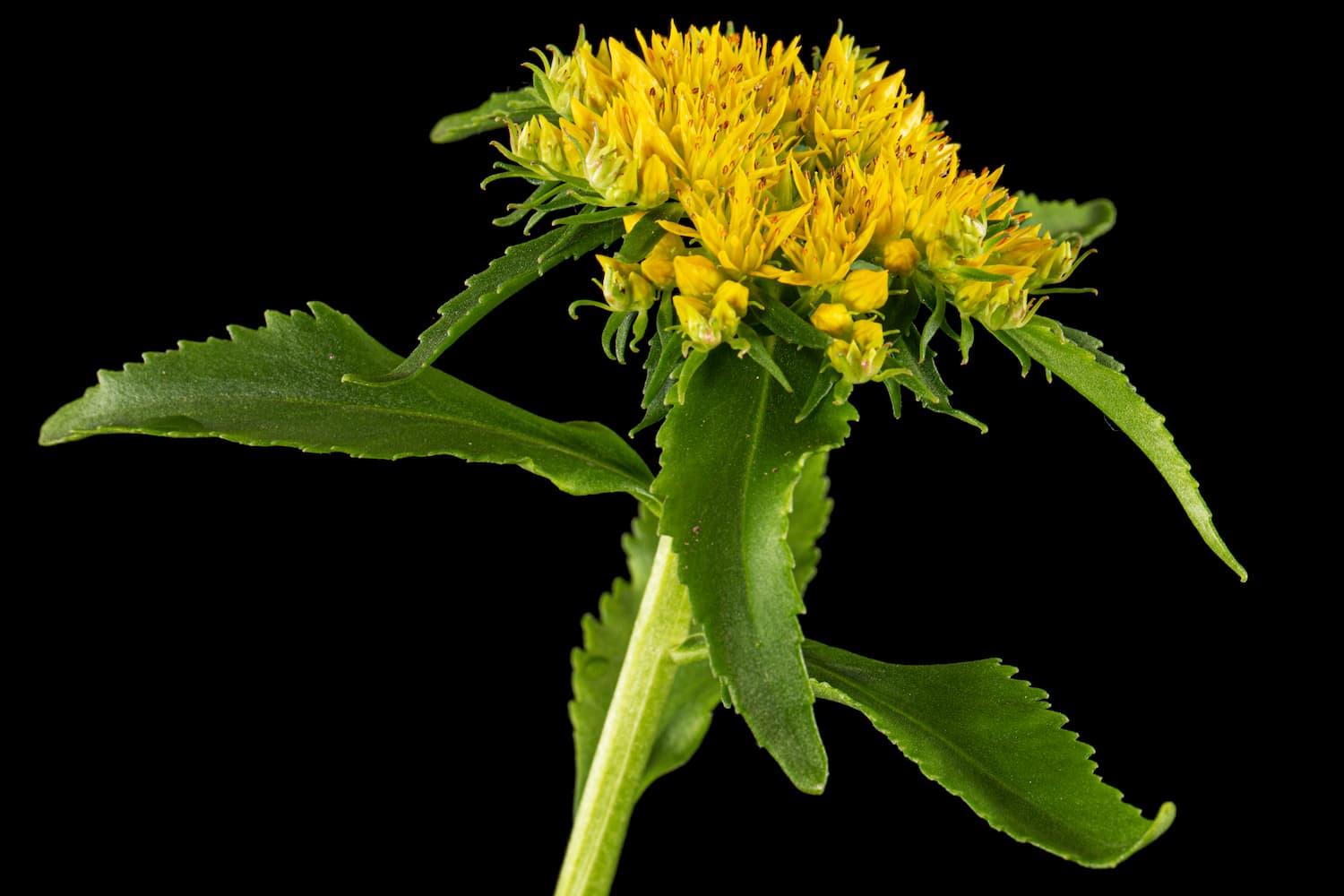
See how mountain pintail can affect your wellbeing.

Check out the opinions of doctors and other professionals about ashwagandha. Also find out what people on the forum think about it.
